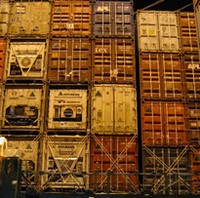The global economy is currently undergoing a quiet transformation. While most of the world’s attention remains justifiably focused on the European Union’s minute-by-minute struggle to formulate a permanent solution to its unending debt crisis, other far-reaching economic forces are shifting beneath the surface. Increasingly, it seems as if the golden era of globalization that defined the last quarter of the 20th century is in danger, with the years prior to the 2008 economic crisis perhaps marking its high-water mark.
Ours has become the era of perpetual global financial crisis, of sagging economic growth, of stubborn unemployment. As the world economy stumbles on, international trade is slowing, and international finance is retrenching. To a certain extent, what we are witnessing can be explained away as familiar problems with “the market.” As long as uncertainty about the future of Europe remains high, this argument goes, these flagging indicators are to be expected, and so we should not be that concerned.
But there is more to the story than that.

